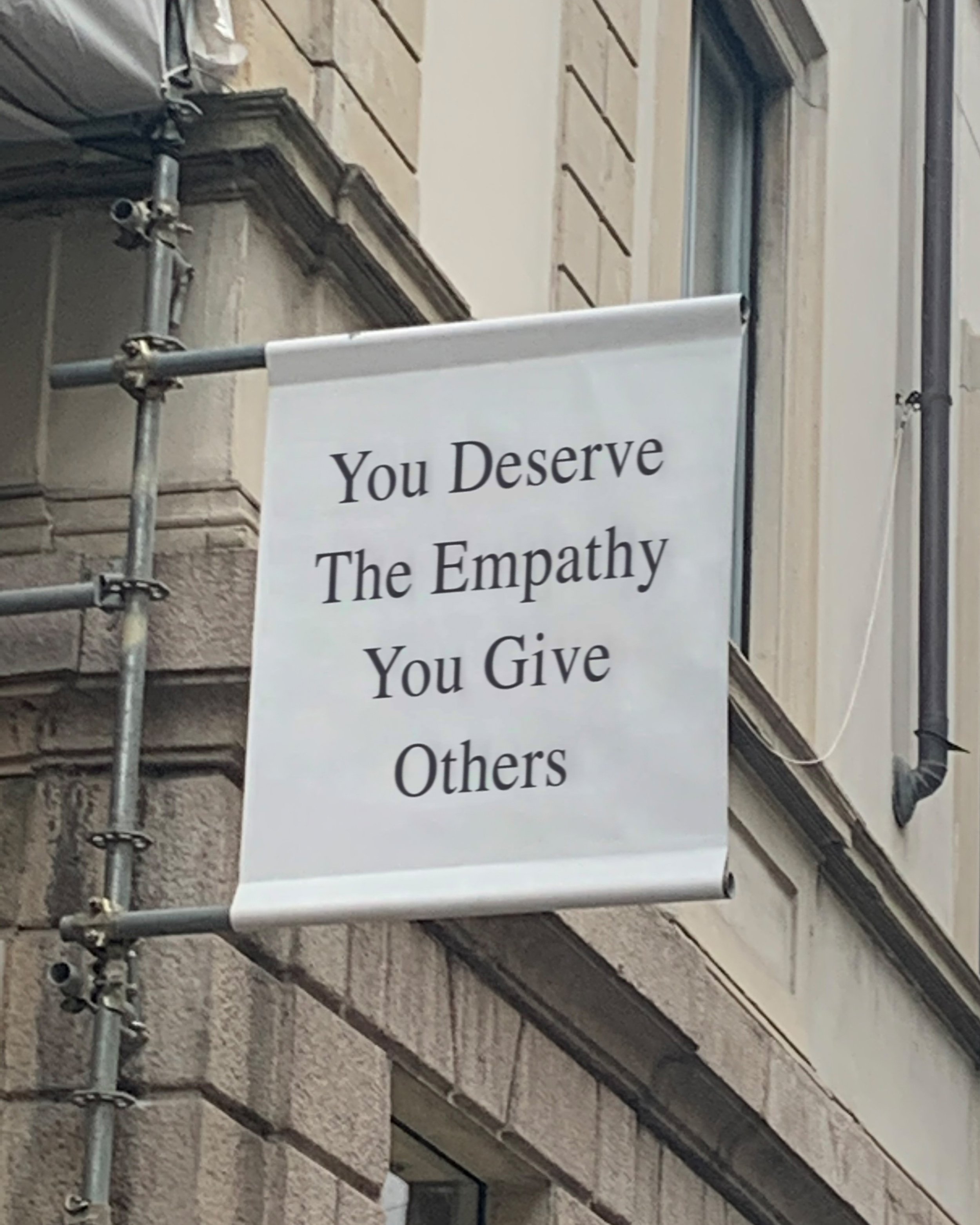The Importance of Self-Compassion
Feeling compassion for ourselves in no way releases us from responsibility for our actions. Rather, it releases us from the self-hatred that prevents us from responding to our life with clarity and balance.
Tara Brach
If you cringe when you hear the words, self-compassion, I get it. In an achievement and success-focused culture, the idea of self-compassion might feel soft, or even weak. We might have a harsh inner critic or we might have been told to just suck it up as a kid. Regardless of the reason, self-compassion can feel difficult. But like all things, it’s a practice. Today, we’re going to explore the pillars of self-compassion, the research-backed benefits, and how we can integrate it into our daily lives.
What is Self-Compassion?
Let’s start with the definition of compassion: A sympathetic consciousness of others' distress together with a desire to alleviate it. Essentially, we see someone’s suffering and we want to help them. Self-compassion is the same feeling state but turned inward rather than outward. According to self-compassion researcher and professor, Dr. Kristen Neff, there are three main pillars of self-compassion: Self-Kindness, Common Humanity, and Mindfulness.
〰️ Self Kindness
While pretty self-explanatory, self-kindness can feel like an uphill battle. As humans, we’re generally great at being kind to our friends & loved ones, but much harder on ourselves. Self-kindness is a practice in being warm and understanding toward ourselves when we suffer, fail, or feel inadequate. Self-kindness asks us to turn down the volume on self-critcisitm and speak to ourselves like we would a friend.
〰️ Common Humanity
The second pillar of self-compassion asks us to recognize that we are not alone. Vulnerability, imperfection, and suffering are all part of the human experience. Recognizing our common humanity isn’t meant to belittle our struggles—actually, it’s the opposite. Self-compassion helps us see that suffering and feelings of inadequacy are part of the shared human experience.
〰️ Mindfulness
Mindfulness allows us to notice and observe the moments when we’re shaming ourselves. We might be surprised to find just how often & how rude we are to ourselves. Mindfulness is key to self-compassion — we can’t offer ourselves self-kindness and recognize our common humanity if we don’t notice and recognize when we need to be softer with ourselves.
What does the research say about self-compassion?
While self-compassion might feel unproductive, the research has quite a few arguments for the contrary. Research indicates that practicing self-compassion is linked to a range of positive benefits, including increased happiness, life satisfaction, resilience, better-coping mechanisms for stress and challenges, reduced anxiety and depression, improved relationships, and a greater ability to forgive oneself and others, allowing individuals to bounce back from setbacks and pursue personal growth more effectively. So while self-compassion might be soft & gentle, it supports us in a myriad of ways to be more equipped for the challenges ahead. If you’re curious, all the studies are linked :)
Integrating self-compassion into our daily lives
The number one question that I get when talking to my clients about self-compassion is: Ok so how does one go about actually becoming self-compassionate? It’s a great question and, like everything else, it’s all about practice. Tara Brach’s RAIN technique is by far my favorite way to integrate self-compassion into our daily lives. It might feel odd and uncomfortable at first, but just like anything, when we keep practicing, it starts to feel more and more like home.
R: Recognize
Recognizing is the first step! This means consciously acknowledging the thoughts, feelings, experiences, and sensations that are impacting you. This could be noting the presence of the inner critic or noticing emotions such as shame, anger, sadness, or frustration.
A: Allow
Now that we’ve recognized our experience, the next step is to allow our experience, without trying to change it. While this sounds simple, we’re often caught in a cycle of suppressing and rejecting our experiences which tends to make them stronger. We’re not trying to fix or avoid — simply to let be.
This might look like saying (mentally or out loud) It’s ok. This feeling is allowed to be here. This belongs.
I: Investigate
Here, we get curious about our experience in an attempt to understand and soften what we’re going through. You might ask yourself: What most wants attention? How am I experiencing this in my body? What am I believing? What does this vulnerable place want from me? What does it most need?
N: Nurture
Once we’ve recognized, allowed, and investigated, we’re ready to bring in the elements of care and kindness that we would to a loved one. You might offer a gesture of active care to yourself - a message of reassurance, companionship, or love. You might need to place a hand on your heart or wrap your arms around yourself in a hug. If this feels difficult you can bring to mind a loving being (family member, friend, spiritual figure, or pet) and imagine them extending their care towards you.
After you’ve completed RAIN, notice what has changed. It might be subtle, but it’s imporatnt to note even the tiniest shift in our state — this helps positive neuroplasticity and growth over time :)
Sources
Brach, T. (2024, January 31). Resources ~ rain: Recognize, allow, investigate, nurture. Tara Brach. https://www.tarabrach.com/rain/
Eghbali BB, Saadat S, Hasanzadeh K, Pourramzani A, Khatami SS, Saberi A, Jafroudi M. Relationship between self-compassion and psychological well-being with the mediating role of resilience in people with multiple sclerosis. Postep Psychiatr Neurol. 2022 Jun;31(2):43-51. doi: 10.5114/ppn.2022.117999. Epub 2022 Jul 13. PMID: 37082095; PMCID: PMC9881576.
Homan KJ, Sirois FM. Self-compassion and physical health: Exploring the roles of perceived stress and health-promoting behaviors. Health Psychol Open. 2017 Sep 14;4(2):2055102917729542. doi: 10.1177/2055102917729542. PMID: 29379620; PMCID: PMC5779931.
Muris P, Otgaar H. Self-Esteem and Self-Compassion: A Narrative Review and Meta-Analysis on Their Links to Psychological Problems and Well-Being. Psychol Res Behav Manag. 2023 Aug 3;16:2961-2975. doi: 10.2147/PRBM.S402455. PMID: 37554304; PMCID: PMC10406111.
About Nourished:
We are a collective of skilled therapists in Encinitas, dedicated to supporting individuals struggling with trauma, anxiety, depression, relationship challenges, chronic nervous system dysregulation, and major life transitions. We blend traditional talk therapy with integrative somatic work, grounded in a nervous system-informed approach, to help you restore balance and nurture inner alignment.
Related Posts
If this post was helpful, you might also like these…







